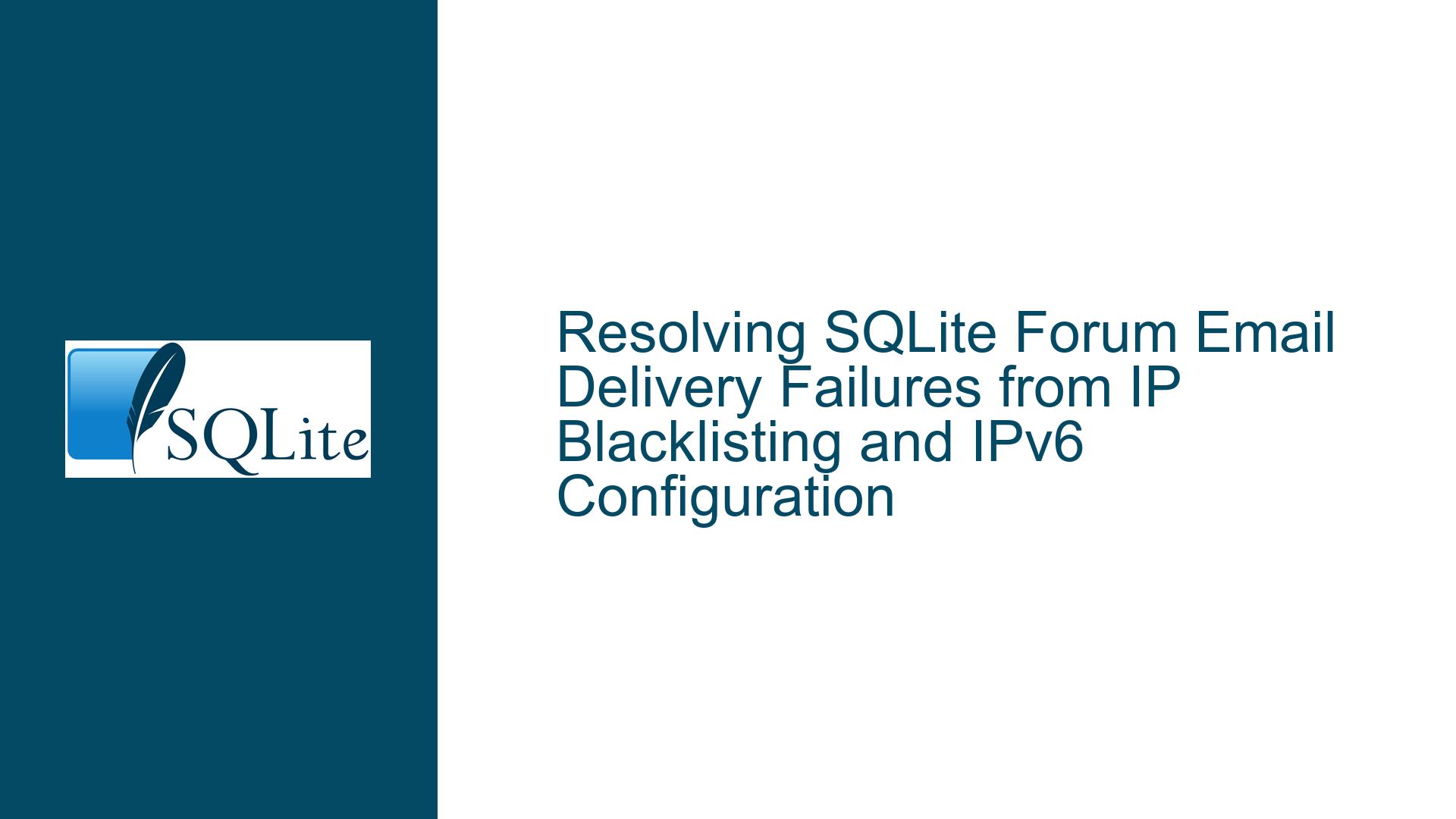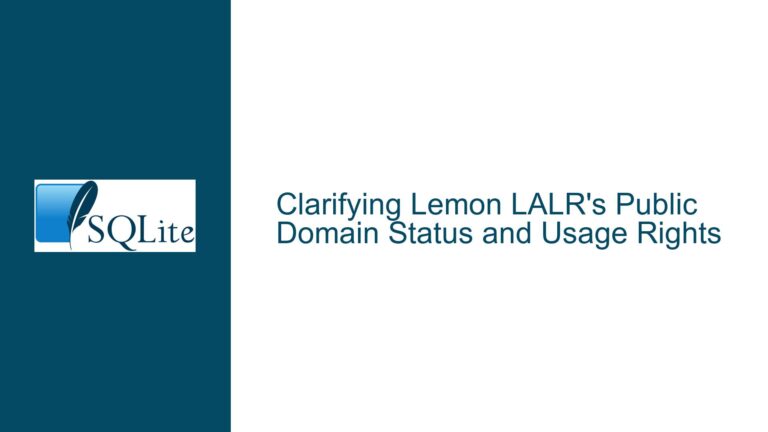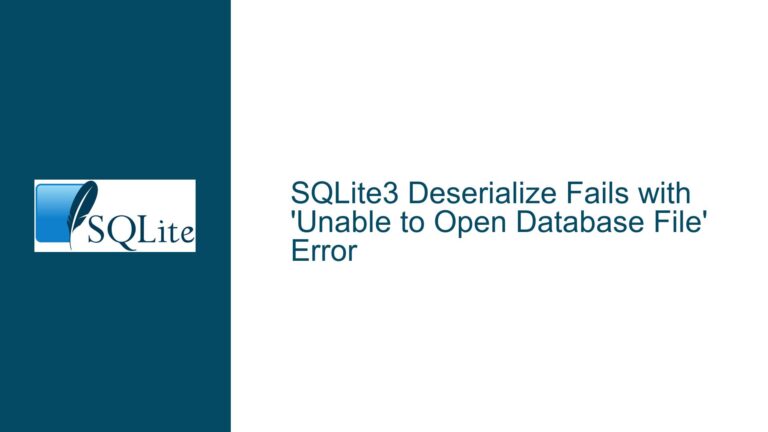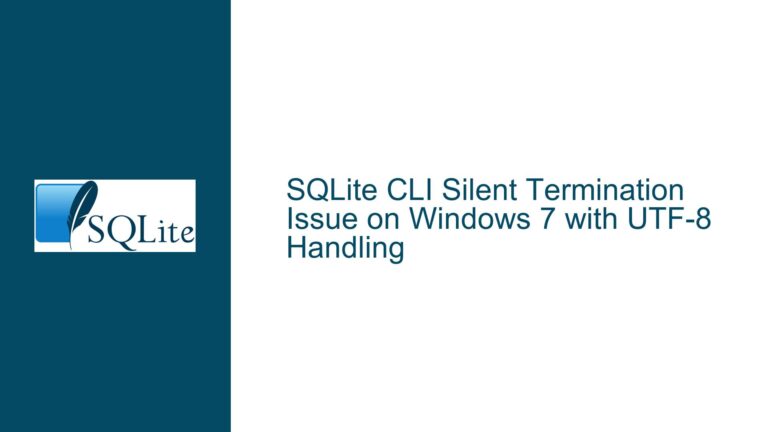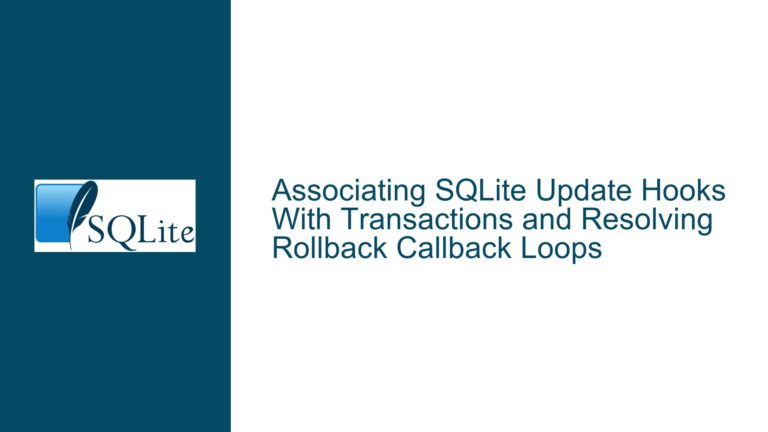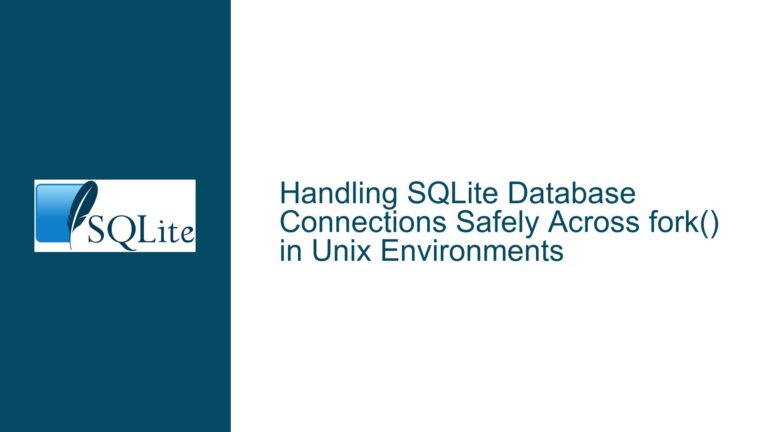Resolving SQLite Forum Email Delivery Failures from IP Blacklisting and IPv6 Configuration
Diagnosing Email Delivery Failures in SQLite Forum Infrastructure
Between May 13–31, 2021, users of the SQLite Forum reported intermittent email delivery failures, with some recipients receiving no notifications and others finding messages in spam folders. The SQLite development team traced these disruptions to two interconnected infrastructure issues:
IP Reputation Blacklisting via UCEPROTECT Level 3
The forum’s IPv4 address (45.33.6.223) hosted on Linode’s AS63949 network was listed in the UCEPROTECT-Level3 blocklist due to spam activity from other Linode customers sharing the /24 IP block.IPv6 Configuration Conflicts with Gmail’s Reputation System
Google Postmaster Tools flagged the forum’s IPv6 address (2600:3c00::f03c:91ff:fe96:b959) due to Gmail’s practice of aggregating reputation metrics across the first 64 bits of IPv6 addresses. This grouped SQLite.org’s traffic with unrelated entities under Linode’s 2600:3c00::/32 allocation.
These problems created a cascade effect where legitimate emails were blocked or marked as spam by receivers relying on DNS-based blocklists (DNSBLs) or proprietary reputation systems. The resolution required protocol-level adjustments in the mail server configuration and strategic decisions about blacklist management.
Root Causes of Email Delivery Disruptions
Blacklist Propagation Through Shared Hosting Infrastructure
SQLite.org’s email server operated on a Linode-hosted IP address (45.33.6.223) within the 45.33.6.0/24 subnet. UCEPROTECT’s Level 3 list automatically blocks entire /24 blocks when multiple IPs within the range exhibit spam behavior. This policy stems from the assumption that adjacent IPs under a single autonomous system (AS63949 in this case) share administrative oversight.
Key factors in the UCEPROTECT listing:
- Automated Listings Without Direct Culpability
As confirmed by UCEPROTECT’s own diagnostic tools, 45.33.6.223 had no direct involvement in spam activities. The listing resulted from third-party abuse elsewhere in the 45.33.6.0/24 range. - Financial Incentives in Delisting
UCEPROTECT offered expedited delisting for a fee (90 CHF ≈ $100 for two years), a model criticized as akin to ransomware by SQLite’s maintainers. - ASN-Wide Reputation Contamination
Blocklists like Spamhaus ZEN and Barracuda Reputation Block List (BRBL) often associate entire ASNs with spam, disproportionately affecting low-volume senders like SQLite.org when neighboring tenants abuse shared infrastructure.
IPv6 Reputation Pooling in Major Email Providers
Google’s Postmaster Tools revealed catastrophic reputation scores for SQLite.org’s IPv6 address (2600:3c00::f03c:91ff:fe96:b959). Gmail groups IPv6 addresses by their first 64 bits (2600:3c00::/64 in this case), meaning any spam from other Linode customers sharing the /64 prefix would taint SQLite.org’s reputation.
Technical Breakdown of IPv6 Reputation Issues:
| Factor | IPv4 (45.33.6.223) | IPv6 (2600:3c00::…) |
|---|---|---|
| Reputation Scope | Single IP | /64 subnet |
| ASN Association | AS63949 | AS63949 |
| Blocklist Impact | UCEPROTECT Level 3 | Gmail Internal Lists |
| Mitigation Complexity | ISP Coordination | Protocol Configuration |
This asymmetry forced SQLite.org to prioritize IPv4 for email delivery, despite IPv6’s theoretical advantages in deliverability and anti-spam filtering.
Mail Server Configuration Oversights
Postfix’s default dual-stack behavior (sending via IPv6 when available) exacerbated the problem. Initial attempts to restrict traffic to IPv4 via inet_protocol=ipv4 in Postfix’s main.cf were misconfigured, allowing intermittent IPv6 usage that triggered Gmail’s reputation filters.
Resolution Strategies for Email Deliverability
Immediate Mitigation: Enforcing IPv4-Only Email Transport
To bypass IPv6-related reputation issues, the SQLite team implemented a Postfix configuration change:
postconf -e "inet_protocols = ipv4"
systemctl restart postfix
This command forces Postfix to use IPv4 exclusively, verified via mail logs showing outbound connections from 45.33.6.223.
Validation Steps:
- Check Active IP Protocols
postconf inet_protocols # Expected output: inet_protocols = ipv4 - Monitor SMTP Sessions
journalctl -u postfix --since "10 minutes ago" | grep "connect to" # Look for IPv4 (e.g., 45.33.6.223) instead of IPv6 addresses
Blacklist Monitoring and Delisting Procedures
For entities affected by UCEPROTECT Level 3 listings:
- Automated Blacklist Checks
Use MXToolbox’s SuperTool to monitor all major DNSBLs:https://mxtoolbox.com/SuperTool.aspx?action=blacklist%3a45.33.6.223&run=toolpage - UCEPROTECT-Specific Delisting
- Level 1/2 Delisting: Free via automated removal after 7 days of clean activity.
- Level 3 Delisting: Requires payment or waiting 1 year for automatic expiration.
- ASN Reputation Appeals
Contact Linode’s abuse department ([email protected]) with evidence of clean mail practices, prompting them to pressure UCEPROTECT for ASN-wide delisting.
Strategic Infrastructure Changes to Avoid Recurrence
Dedicated IPv6 /64 Subnet Allocation
Keith Medcalf’s suggestion to request a static IPv6 /64 subnet from Linode isolates reputation metrics from other customers. While still under AS63949, a dedicated /64 prefix prevents collateral damage from neighbors’ activities.
Implementation Workflow:
- Linode Support Ticket
Request a static IPv6 /64 via Linode’s dashboard, citing email deliverability requirements. - DNS Configuration
Update AAAA records to point to the new IPv6 address. - Postfix Reconfiguration
postconf -e "inet_protocols = ipv4, ipv6" postconf -e "smtp_bind_address6 = <new-ipv6-address>"
Sender Policy Framework (SPF) and DMARC Optimization
Though not mentioned in the original thread, enhancing SPF records prevents spoofing-related blacklisting:
Sample SPF Record:
v=spf1 ip4:45.33.6.223 ip6:2600:3c00::f03c:91ff:fe96:b959 include:_spf.sqlite.org -all
DMARC Policy for Monitoring:
_dmarc.sqlite.org. IN TXT "v=DMARC1; p=none; rua=mailto:[email protected]; ruf=mailto:[email protected]"
Collaborative Reputation Management with Email Providers
- Google Postmaster Tools Enrollment
Register SQLite.org to access detailed delivery metrics:https://postmaster.google.com/- Monitor "IP Reputation" and "Domain Reputation" dashboards.
- Submit delisting requests via the "Feedback Loop" for falsely blocked messages.
- Microsoft SNDS Participation
Register the forum’s IPs in Microsoft’s Smart Network Data Services:https://sendersupport.olc.protection.outlook.com/snds/
Fallback Notification Systems
To mitigate future outages, implement redundant notification channels:
- Webhook Integration
Develop a parallel notification system using HTTP callbacks to users’ preferred endpoints. - SMTP Relay Failover
Configure Postfix to route emails through a secondary SMTP provider (e.g., Amazon SES, SendGrid) when direct delivery fails:postconf -e "relayhost = [smtp.sendgrid.net]:587" postconf -e "smtp_sasl_auth_enable = yes" postconf -e "smtp_sasl_password_maps = hash:/etc/postfix/sasl_passwd"
Long-Term Preventative Measures for Email Infrastructure
IP Warmup and Volume Throttling
New IPs (especially IPv6) require gradual reputation building:
- Daily Email Limits
Restrict outbound emails to 500/day for the first 30 days. - Recipient Domain Rotation
Prioritize low-risk domains (e.g., corporate emails) before mass-notifying free providers (Gmail, Outlook).
Protocol-Specific Monitoring Alerts
Nagios Configuration Example:
define service {
host_name mailserver.sqlite.org
service_description SMTP IPv6 Usage
check_command check_nrpe!check_smtp_ipv6
max_check_attempts 3
normal_check_interval 15
}
Matching NRPE script (/usr/local/nagios/libexec/check_smtp_ipv6.sh):
#!/bin/bash
CONNS=$(ss -tlnp | grep ':25' | grep -c 'tcp6')
if [ $CONNS -gt 0 ]; then
echo "CRITICAL: SMTP IPv6 connections detected"
exit 2
else
echo "OK: No SMTP IPv6 activity"
exit 0
fi
Legal and Financial Contingencies
- Blacklist Ransomware Budget
Allocate funds for emergency delisting fees (e.g., UCEPROTECT’s 90 CHF) when business-critical emails are blocked. - ISP Contractual Obligations
Negotiate SLAs requiring Linode to:- Proactively monitor customer IP spaces for abuse.
- Subsidize delisting costs for false positives.
By addressing both the technical misconfigurations and the ecosystem-wide challenges of shared hosting environments, organizations can harden email deliverability against infrastructure-level disruptions. The SQLite case underscores the necessity of protocol-aware monitoring, provider collaboration, and defensive financial planning in modern email infrastructure management.
